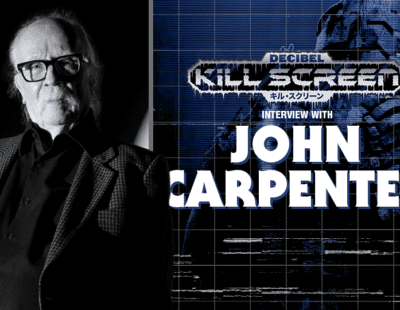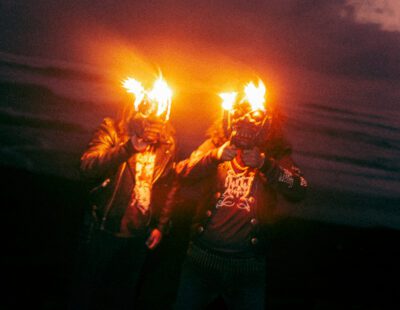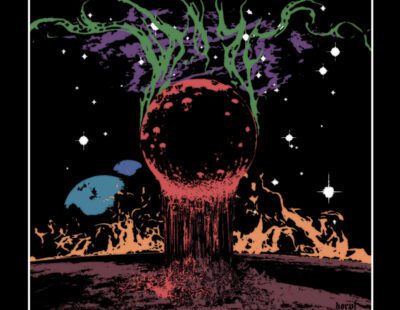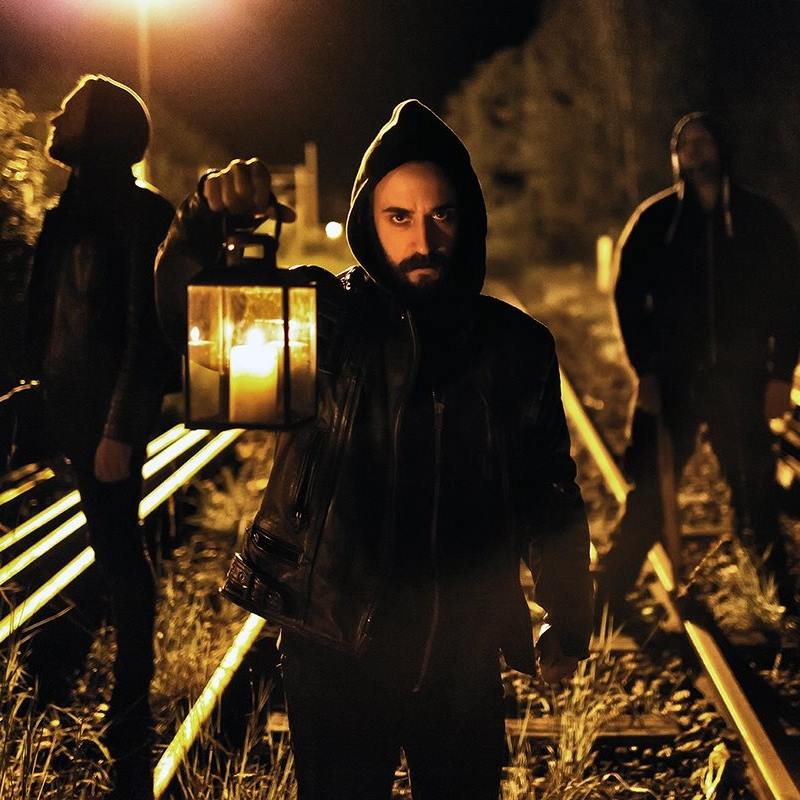
Next week sees the release of The Apostates, the seventh album by Parisian black metal shapeshifters, Glorior Belli, a band with a history reaching back over 15 years when they came to life as a Norwegian worshipping whirlwind. With time has come change as band leader Billy Bayou – also known by the less swampy and more Gallic, Julien – has tapped into his love of southern and stoner rock, sludge and Americana to commit small-scale heresy by injecting those sounds into black metal. With its combination of hateful swagger and down home iciness, The Apostates should appeal to listeners who pride themselves on having that titular quality as part of their listening habits. And while the new record may contain some of Glorior Belli’s most traditional black metal moments since their formative years, we get it if their approach is a bit too left field for some. In that case, our man also heads up 11 As in Adversaries, a project which is at once more progressive, avant-garde and traditional black metal. After a lengthy battle with the “new and improved” Skype, we caught up with Monsieur Bayou to discuss transformative processes, liberation and being signed to almost every label out there.
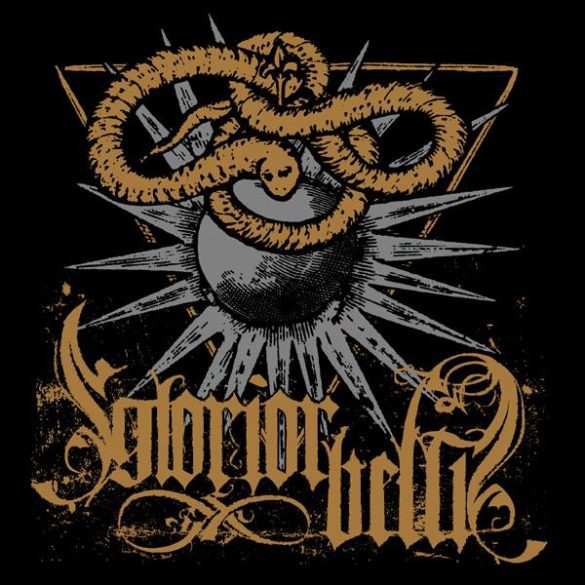
How is Glorior Belli structured? Is it a band, a one-man band or you playing with hired guns?
It hasn’t always been the same, but I am the only remaining member from the very beginning. At the moment it’s me and, like you said, hired guns; a few people that I trust and that have been around me for a few years now. It’s the most stable lineup that I’ve ever had.
What’s been the problem? The non-traditional sound, are you difficult to work with or something else?
I’d say it’s a bit of both. I’m not easy to work with, that’s for sure. Some people don’t do well being told what to do. I record everything on my own and some people feel bad that they don’t get the glory of recording the album and so on. Mostly, the biggest issue I have is that I write music for people and they’re not capable of playing it back, which isn’t going to work if you’re in a band. You have to get your game on. There were a lot of different reasons. Sometimes we’ve broken up for a little bit, motivation comes and goes, same thing as every other band. But I’m still here and I guess that’s what matters the most.
Do you record drums yourself as well?
I always hire a drummer for the studio. I’m not that good at drums, so I always get a guy to record it for me and it’s been different people over the years. Sometimes they don’t play live and are there just in the studio.
Has it always been live drums? Sometimes I find it hard to tell if I’m hearing a drum machine or not?
Yeah, it’s always live drums. Sometimes they might sound pretty shitty and the production isn’t the best and not perfect. I’d love to go back and change some stuff. I wouldn’t say it’s always been a matter of low budgets, but more that we have this intention of making things in the moment, spontaneously and not over thinking. So, some things might sound OK at one time and later on you think it could have been better. I appreciate everything we do in spite of that.
At what point did you decide to combine southern sounds with black metal?
I guess you could say that in our discography the game changer was the album Meet Us at the Southern Sign from 2009. This was where we really started mixing influences together and it was kind of a natural thing for me. I’ve always listened to different kinds of music, like the blues and country like Howling Wolf, Hank Williams, “Freebird” and the NOLA sound with Acid Bath, Down, Pantera, Eyehategod, Corrosion of Conformity and stuff like that. I had those sounds influencing me. It’s bullshit when people say they go into the studio and that they’re not influenced by anything and that they make their own shit. When you’re a musician, your life is about music and you listen to it every day. Even if you don’t, you always have your influences with you and that’s a good thing. So I just use it with my own brain and make something that became the Glorior Belli signature sound, I guess you could say.
How have reactions been to this combination?
It really depends. There are countries that are more open and less traditionalist in a way. We’d been to America on a tour and to the people there, it felt like no problem at all. They didn’t have any problem with us mixing those things together. In Europe, people are a little bit more sensitive about avant-garde music, if you want to use that terms. But there are people who like a huge variety of bands who think it’s OK and like it.
With that accepting American reaction, do you think that tapping into what’s commonly thought of as “American music”?
It could be that. These are some of the roots of North American music, but I don’t know, there are many people over here who love this kind of music too. So it would technically appeal to them the same way, I guess. It’s hard to explain people and their different tastes [laughs].
What does the band name translate to?
There are many ways to interpret the Latin language and perhaps when I came up with the name I wasn’t a professor of Latin guy so it might not be exactly right, but the point for me is that the way I translated it was meant “to glorify yourself through adversity.” You go through many, many things in life and you reach a point where you’re able to show yourself and shine and show your value after hard times.
Adversity, eh? So, is there a connection between that and 11 as in Adversaries?
Somewhat, but 11 as in Adversaries is a little more about the number 11 itself. It’s difficult to explain, but in gnosticism, it is meant to represent everything that is outside of the cosmos. So, by saying “11 as in adversaries,” it means this. And also in the name ‘adversaries’ itself there are eleven letters, which was intended and something different.
What were you looking to do different on the new record?
Basically, this time I decided to give it a little bit more thought beforehand and we chose a guy, a sound engineer named Frédéric Gervais, who is very close to us at Studio Henosis that is close to us also. It was all planned in advance, how things should sound, what we wanted for production, even the lyrics, everything was really well thought and it came together as a concept album.
Was it recorded all in the studio or did you do any of it at home?
For the new one, I recorded instruments at home because I have what you’d say is a pre-production studio here. I just recorded the guitars and bass at home to make some sort of a demo. When I had everything figured out, I went to the studio and recorded everything all over, but it went fast. Obviously, when you’ve already thought about the arrangements and structures and everything, it’s just about going through it again. I also had the guitar player come in with me this time and he helped with a little bit of backing vocals and some bass lines too.
Can you explain the album’s concept?
Hmm, how to explain this? The Apostates came to mind because basically I would say that I feel like an apostate, in a good way, as a musician. You mentioned before about how people feel about the mixing of styles and everything, it goes against the flow, but to me it feels ok to be like this. Other than that, it’s an important theme for me because generally, whatever religion, political regime and anything you’re under, as long as there is abuse and people are blinded by the people in power, their bullshit and the things that don’t matter, these things will keep them limited. That’s a bad thing. I want people to be able to at least try to free themselves from the mediocrity of everyday life; this prison you might say. That’s what the title refers to.
You’ve had albums released by Candlelight, Southern Lord, Metal Blade, Agonia and now Season of Mist. Is there a reason for the switch between so many labels?
You could say that I like change. It kind of happened and it wasn’t a deliberate choice to always change, but I felt like it was ok at the time to change whenever the opportunity showed up. I’m not going to deny that. It wasn’t a problem to work with any of the labels. It was always fun, always professional and with Season of Mist it feels the same. It feels like home, the same as it did before with the others. Why do we never stay in one place? I guess it challenges me to changes and put yourself in a situation where all of a sudden you’re on your own and you don’t have people doing shit for you. It triggers the desire in me to go beyond my limitations again. I think maybe that’s it.
From a business standpoint, when you signed with any of them was it supposed to be one album deals?
Well, you know how it is; you usually sign for one record and there’s an option on the second one and when the time comes it’s usually a new negotiation that’s starting. But the business part isn’t the most interesting or important, it’s the desire to change.
With Season of Mist backing you, a label based in your home country, are there more plans for touring and stuff?
That’s a tough question either way because if you’re asking me would you like to tour I’m going to say the same thing I’ve always said: if tomorrow you said I could go away on tour for a year, iI’m going, no hesitation. I can drop everything, no problem. But then comes the reality of the music business, which is no surprise to you: if you want to go on tour, it takes money. It’s an investment and now we’re talking money [laughs]. If you’re asking if having Season of Mist backing us is going to open some doors for us, I guess, but are we going to be ready or willing to invest? If it’s the right time and right place, probably yeah, but we’ll have to wait for that time and place.
How has what Glorior Belli means to you changed over the years?
The early days it was me and my best friend, Sebastian as a drummer, just the two of us playing in his basement. We were like 15 years old. Then, we had a rehearsal studio and thought it was time to start something real. At the rehearsal studio, the ambition started when we met other musicians and people started checking us out. For us, it was about being together and hanging out. We used to drink more than we played music – still do! – and it was cool. We imagined our heroes back then, Norwegian bands like Darkthrone, Immortal, Mayhem and it was just the two of us against the whole world. It was the teenage rage that everyone gets. Nowadays, Sebastian is gone, and I still try and feel this rage and keep it alive. And in this sense, nothing has changed, I’m still the same angry teenager, but music has become more than entertainment only, it also helps people. I’ve had a few people come up to me and say that my records have helped them understand how to develop their own material, carve their own path and free themselves from whatever was holding them back. These people have become friends. I’m not saying I’m a prophet and this is gospel, but someone else has taken from me the tools for their own liberation, it feels great. If I can keep doing this for people, I’ll keep doing it for as long as I can.
Photo by Neurotica Photography




